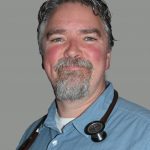By Dr. Anne Brewer, Grace Cottage Family Health & Hospital
I have been privileged to work with hospice and palliative care teams for the past 25 years. Despite growing public awareness, there are still many questions about exactly what hospice is, and how it differs from palliative care.
Patients and families will ask: Why choose hospice? When is it appropriate? How is it different from palliative care? When is palliative care an option? And, where can someone receive hospice or palliative care for themselves or a loved one? Does choosing hospice mean giving up?
Palliative care may be used for anyone with a severe chronic disease, regardless of their prognosis.
Read More...



